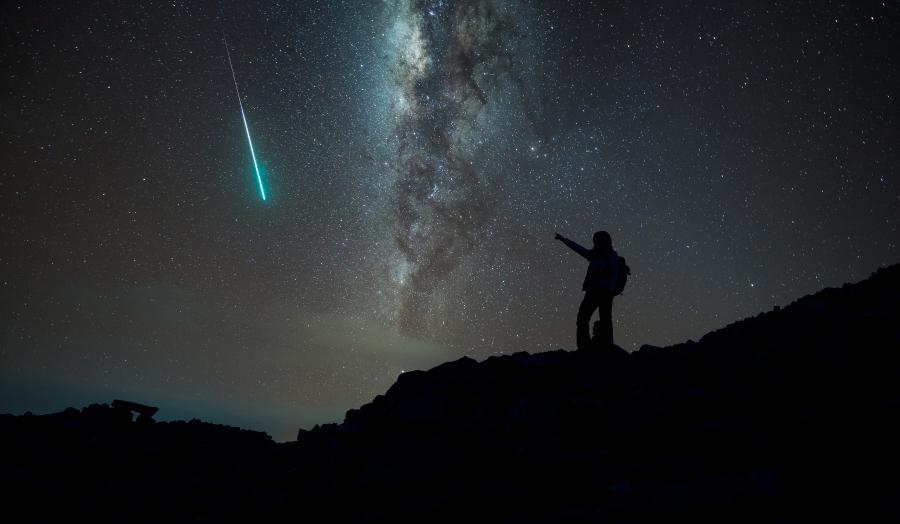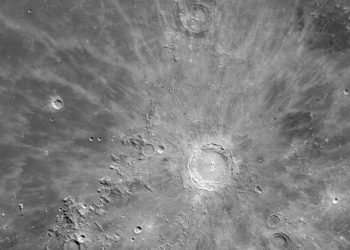In every civilization’s story, there comes a point when the boundaries of the known world are pushed so far that new lands—and new perspectives—come into view. We’ve stood on Earth’s shores for millennia, gazing at the infinite ocean of stars. Now, as our scientific instruments become more advanced, the possibility of finding intelligent life beyond our planet no longer belongs only in the realm of fantasy. We have spacecraft racing to the Jovian system, equipped with instruments that will be able to tell us if that is a great place to look for alien life. We have got similar tools on Mars, and we are working on bringing back some of these samples to Earth, so we can answer if there is life on these not-so-distant words. If there is, it will likely be microbial in nature. But what if making contact with extraterrestrial beings is about more than just science? What if it holds a mirror to us, revealing who we really are and what we might become? What if we are not the “most intelligent” species in the galaxy, what if three are for superior species? In this article, I have given this and more a more philosophical approach, and here is how I think.
A Cosmic Revelation
The thought of receiving a message from distant stars—perhaps a radio signal or some other kind of transmission—sparks a host of questions that go far beyond science fiction. How would we react? Would we set aside our differences and unite, or would we be so overwhelmed by our own fears that we miss this extraordinary chance? Some believe this kind of discovery could trigger a profound shift in our collective mindset, prompting us to see ourselves not as members of separate nations, but as one species with a shared destiny. In this sense, an alien encounter might act as a cosmic wake-up call, pushing us to confront our flaws and encouraging us to aim higher. Would we, at this point, get our … together as a species? How much would really change?
A Lesson in Perspective
We don’t have to travel far back in history to see how major scientific breakthroughs can unite humanity. When we first saw photographs of Earth from the Moon, many people experienced what’s now called the “Overview Effect.” Astronauts described feeling a deep understanding of Earth’s fragility and unity when they observed our planet from space. They saw no visible borders, no lines carving out different countries. That moment reshaped global consciousness, even if only for a brief period of time.
An actual exchange with extraterrestrial intelligence could be an even more powerful version of this phenomenon. It would likely eclipse any previous achievement in space exploration. Instead of looking inward and finding countless reasons for division, we would look outward and see our planet in the context of a vast universe—one that may be teeming with life at various stages of evolution.
A Catalyst for Cooperation and Growth
Inspiring Scientific Innovation
If we received a clear signal from another civilization, our technology would immediately be put to the test. Scientists, engineers, and innovators from around the world would race to interpret the signal’s meaning and possibly respond in kind. We might pool our brightest minds to invent new methods of communication, pushing the boundaries of quantum physics or other frontiers we can barely imagine today.
In the same way that the space race of the 20th century boosted our scientific know-how—from satellite technology to advanced materials—contact with aliens could ignite a new era of rapid progress. Our fields of study would expand to include interstellar archaeology, cosmic linguistics, and even entirely new disciplines dedicated to understanding alien biology or chemistry.
Uniting Humanity
We’ve seen how even small steps in space exploration can bring people together. During the Apollo missions, millions around the globe watched in awe as humans set foot on the Moon. It wasn’t just Americans who were inspired; it was people from every continent, all hoping the promise of human achievement would elevate us beyond terrestrial disputes.
A meaningful exchange with extraterrestrial life could be a far stronger unifying force. Nations might find common ground in the shared task of decoding alien technology or biology. In some optimistic scenarios, countries that once clashed might see the value of collaboration over conflict, recognizing that we all face the same challenges on our single home planet.
Redefining Ethics and Global Collaboration
Rethinking Our Place in the Cosmos
Encountering a civilization that may have survived and thrived for eons longer than we have could challenge our deeply held beliefs about progress, morality, and even spirituality. Humanity’s dominant narratives—be they cultural, religious, or philosophical—might shift toward a more inclusive vision of our place in the cosmos.
If we discovered that another species had overcome crises similar to ours—such as environmental collapse or internecine wars—could their example guide us away from destructive paths? That’s where the mirror effect becomes powerful: we would no longer be the lone intelligent species in the universe. We’d see ourselves as part of a bigger story, with the chance to learn from civilizations that have matured beyond the disputes that plague us.
Envisioning a New Code of Conduct
If communication with an alien civilization were established, questions about interspecies rights, ethical guidelines for exchanging knowledge, and the moral responsibility to preserve both civilizations would arise. We might need entirely new global agreements to ensure that any transfer of technology and ideas happens responsibly, without exploitation or harm. This could spark conversations about how we treat each other at home—our own inequities and injustices might suddenly seem unacceptable when judged by advanced beings from beyond our world.
How Might First Contact Occur?
Speculation about first contact varies widely, ranging from radio signals and mathematical patterns to more spectacular events, such as extraterrestrials physically arriving on Earth. In a scenario involving radio or light signals, astronomers and experts in communications would likely compare data from observatories around the world. Once there was agreement that this signal could not be produced naturally, global scientific communities and political leaders would probably convene an emergency summit to discuss next steps.
From there, the scope of our response might be surprisingly collaborative: a multinational team could be formed to craft a reply. Religious and philosophical leaders could join scientists to debate the potential moral and spiritual implications, ensuring that all perspectives are heard before forging a historical message in response.
Changing Societal Priorities
For many, the discovery of extraterrestrial intelligence could be the single greatest motivation to unify, innovate, and preserve our planet. Why? Because a sudden realization that we are not alone might cast our everyday struggles in an entirely different light. Economic conflicts, political squabbles, and cultural rivalries could become less important compared to the cosmic opportunity unfolding before us.
If the alien civilization showed evidence of advanced technology—especially in energy or transportation—this might provide breakthroughs that could help solve Earth’s most pressing challenges. Environmental crises might finally be addressed through knowledge shared across interplanetary lines, or through renewed human determination, fueled by the knowledge that greater achievements are possible when we work together.
Final Thoughts
Whether it comes in a crackling radio transmission or an unexpected visit, the prospect of contact with intelligent extraterrestrial life stirs our imagination and offers a glimpse of humanity’s potential. I really hope it will occur in my lifetime. But whatever the case, I guess that far from being a mere curiosity, it could become the ultimate transformative event—one that forces us to reflect on our own behavior, galvanizes cooperative spirit, and pushes us to reach higher, in every sense of the word.
But then again and when I let my philosophical side shine, I guess that we don’t need to wait for a call from the stars to start acting like the best version of ourselves. But if and when it does come, let’s hope we’re ready for the challenges and opportunities it will bring. In the end, the search for life beyond Earth might teach us the most valuable lesson of all: how to truly live together here at home. Becasue if we cannot oexist on this planet peacefully, how do we expect to coexist on a greater stage, a galactic stage?











